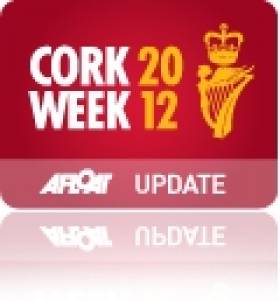Displaying items by tag: Pater O'Leary
Lyons Hopes For a Special Cork Week in 2012
#CORK WEEK - Pat Lyons of Royal Cork Yacht Club has spoken to website The Cork News about the city's hopes for the 2012 Cork Week regatta.
Crosshaven in Cork Harbour will host the club's biggest regatta - which takes place every two years - from 7-13 July this summer.
“Sailing in Ireland and Cork is in great shape,” says Lyons, who is expecting more than 250 boats to pack the harbour for racing and more.
The event is also perfectly timed just two weeks ahead of the 2012 Olympic Games in London, where Royal Cork Yacht Clubman Peter O’Leary will vie for gold with Dublin yachtsman David Burrows in their two-man keelboat.
Though the economic downturn has had a serious effect, costs have been cut across the board and some rules have been relaxed to allow for the widest possible level of participation.
“There are three factors that make Cork special," says Lyons. "Firstly, there is the number of boats and the various fleets. Secondly, there are 10 races planned. While that doesn’t always pan out due to the weather, we have pretty settled weather conditions and an excellent coastline in Cork, with hills running down to the sea.
"And finally, there is the harbour, which, if the weather impacts, provides excellent shelter. We’ve always been able to achieve a higher level of competition than a lot of other regattas, with at least one or two races per day.”
As previously reported on Afloat.ie, preparations for the event have already kicked off with the launch of a dedicated new website.
The Cork News has more on the story HERE.





























































